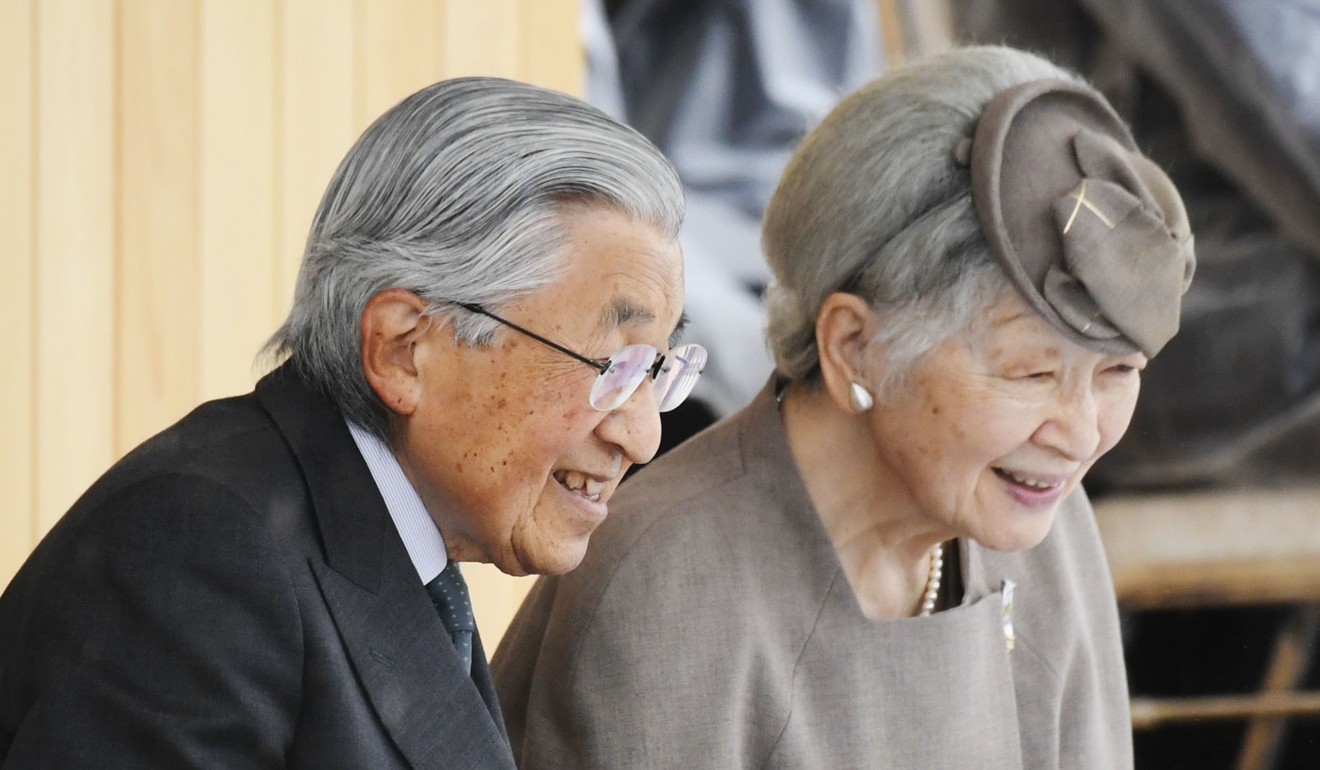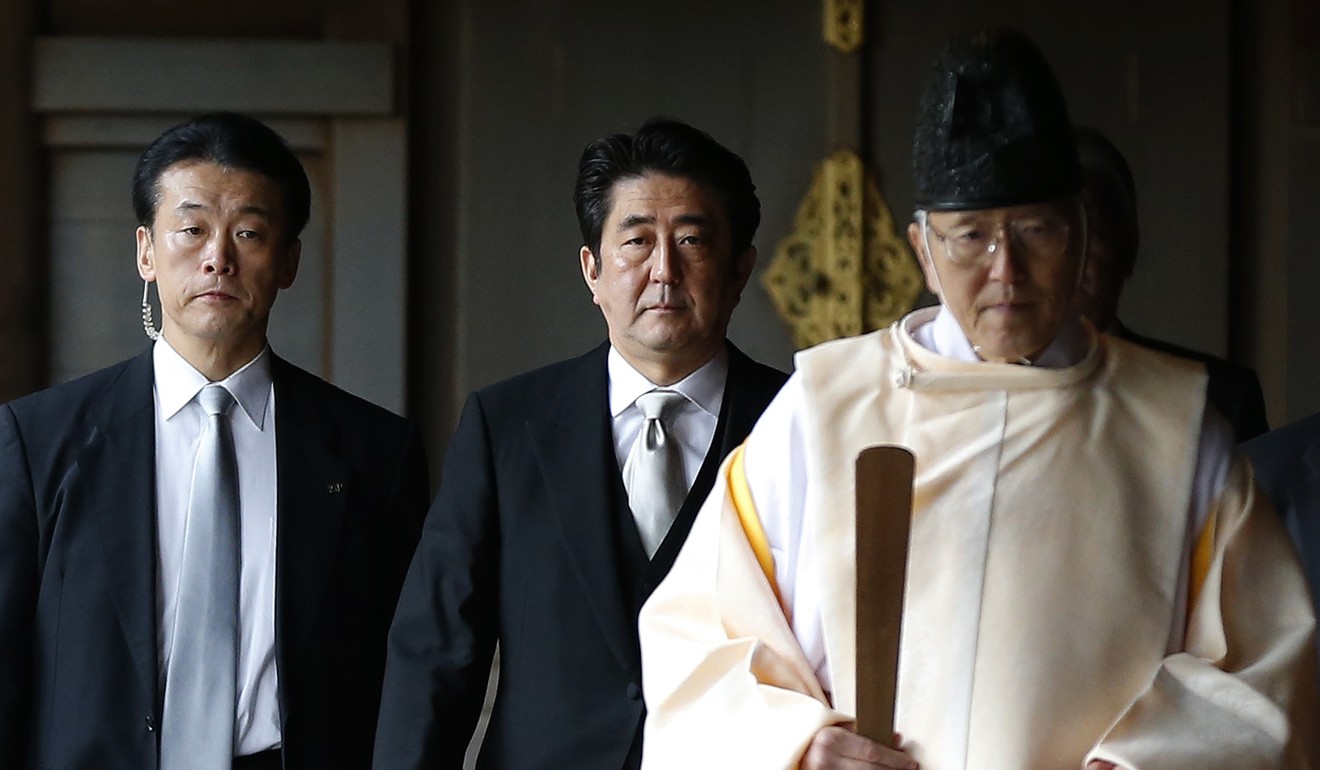
Top priest at Japan’s controversial Yasukuni Shrine will quit after criticising Emperor Akihito
Though he has no political power, the emperor has annoyed Japanese right-wingers by acknowledging that his country inflicted ‘great suffering’ in China, and expressing regret over Japan’s brutal rule of the Korean peninsula
The chief priest at Japan’s controversial Yasukuni Shrine in Tokyo will quit after “highly inappropriate language” criticising the emperor was leaked to a magazine, the shrine said on Thursday.
The shrine, which honours 2.5 million war dead but also enshrines war criminals from the second world war, has frequently been at the centre of rows with Asian neighbours that suffered Japanese atrocities.
Senior Japanese politicians including Prime Minister Shinzo Abe have made appearances at the shrine but Emperor Akihito has never visited since his coronation in 1989, while his father Hirohito did not return to Yasukuni after war criminals were enshrined there in the mid-1970s.

In its latest issue, the Shukan Post weekly magazine quoted chief priest Kunio Kohori, 68, as saying at a closed-door meeting in June that “the emperor is trying to destroy Yasukuni Shrine”. The more the emperor goes on memorial trips for the war dead, the more the Yasukuni Shrine’s position declines, he reportedly added.
Akihito, who will abdicate next year, has throughout his reign hinted at pacifist views, which are sharply at odds with the aggressive expansionism Japan pursued under his father’s rule. He has visited several former battlefields in the Pacific islands to pray for soldiers and civilians who perished there.

Though he has no political power, the emperor has annoyed Japanese right-wingers by acknowledging that his country inflicted “great suffering” in China, and expressing regret over Japan’s brutal rule of the Korean peninsula.
The priest also reportedly said Crown Prince Naruhito and his wife Masako would probably not visit the shrine as the new emperor and empress. The future empress “hates” Japan’s native Shinto religion, the priest claimed.
In a statement on Thursday, the shrine said Kohori will resign from the post of chief priest, after “highly inappropriate language made in a meeting … was leaked”.
Kohori “directly visited the Imperial Household Agency and apologised over the issue and expressed his intention to resign” from the post, the shrine said. A successor will be picked at a meeting later this month, the shrine said. A shrine spokeswoman declined to confirm the reported comments but acknowledged the resignation was linked to the magazine article.

.png?itok=arIb17P0)